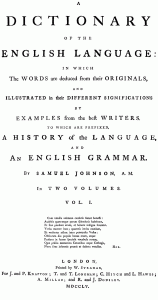Can you request an exemption from language testing for Canada’s Express Entry program?
By Stephen Fogarty • February 28, 2018
 Canada’s immigration selection system allows immigration officers some discretion “to substitute … their evaluation of the likelihood of a foreign national’s ability to become economically established in Canada.”
Canada’s immigration selection system allows immigration officers some discretion “to substitute … their evaluation of the likelihood of a foreign national’s ability to become economically established in Canada.”
This general rule was cited in a legal challenge to compulsory language testing of principal (main) applicants seeking permanent residency under Canada’s federal Express Entry or EE system. The Federal Court of Appeal ruled on this issue during January 2018, in a case known as Cabral. The Court considered whether applicants who had been unable to obtain the minimum language test scores required for Canadian permanent residency under at least one official language, English or French, could ask an officer to exempt them from this requirement, if they could show they would become economically established in Canada.
The answer of the Court was a resounding “no”. In a 3-0 ruling, the Court held that the discretionary powers of immigration officers are limited. Canada’s Immigration Minister has the power to set language requirements for the better administration of public policy as it relates to our immigration needs. Moreover, immigration policy is not only a question of economic factors, but also social integration. As stated in the Court’s judgment:
“… it is not inconsistent with the flexibility granted to Immigration Officers under … the Regulations to require that the Department weed out applications from those who fail to meet minimum language proficiency criteria before they are processed, thereby rendering their applications ineligible for substitute evaluation … the ability to become economically established is a narrower notion than the goal of fostering rapid integration: an individual may be economically established but not integrated into Canadian society, especially if he or she cannot communicate in one of Canada’s official languages.”
Watch out for crooked consultants
Therefore, if you meet with an “immigration consultant” who offers you a “service” whereby, for a fee, he or she will request a federal immigration officer to exempt you from language testing, know then you are in the presence of a crook, and walk out the door as fast as you can. Federal immigration officers simply do not have power to override minimum official language skill requirements under the EE system.
Other key points to consider
Candidates for Canadian immigration must take a test administered through one of the services “designated” by Immigration, Refugees and Citizenship Canada. Take the test required for your desired program, as the minimum scores required vary.
Our clients’ collective experience shows that if you take time to prepare for language tests, such as at least familiarizing yourself with how the tests work, trying some practice questions or tests, or even reviewing preparation manuals, chances are you will do better than “winging it” without any preparation. It is not just a matter of obtaining the minimum scores required. The higher you score, the more points you receive, and the better will be your chances of selection for Canadian immigration Also, if you have a spouse or common-law partner, their language test scores may help improve an Express Entry file, even though it is not compulsory for them to take the test.
There are also some distinctions regarding the language scores required for certain provincial nominee programs in relation to some types of job offers used to support immigration applications. These variations are not the same as requesting an exemption.
As ever, applying for immigration is key procedure for your future. You are best served to seek professional guidance in this, as in any important venture. It is easy to be tempted to rely on free advice. However, as the wise Dr. Samuel Johnson would have said, the value most often received from free advice is exactly what was paid for it.
Photo credit: Cover of Dr. Samuel Johnson’s English Dictionary and Grammar, published London, 1755, from johnsonsdictionaryonline.com